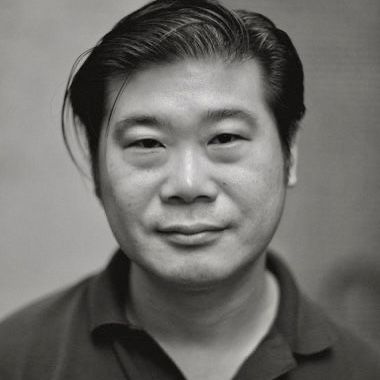The Half of It
Alice Wu's first film in 15 years, THE HALF OF IT, came out on Netflix last Friday, and I tweeted about it, along with some profiles on Alice, here:
🙌 Tonight's the night! 15 years after her first feature—the groundbreaking and iconic film Saving Face—@thatalicewu is back with the premiere of #TheHalfOfIt on @netflix! (For all the parents out there it's PG-13):https://t.co/TofyaAF0so
— Gary Chou (@garychou) May 1, 2020
I absolutely loved it—the writing, the characters, the performances and how its shot—but the thing that stands out most to me is the craft of the film: achieving a level of density and layering in the film while still pulling off an extremely light pace.
There's a great Tweet thread that highlights a few of these moments in the film (it's worth clicking through to take a look at the full thread):
reflections of your other half pic.twitter.com/F5NhbyTMJw
— caitlin (@sapphiccaitlin) May 2, 2020
It's a tough feat to pull off this level of complexity, but it helps when you have a clear sense of what you're trying to do.
I remember stumbling upon Alice's Director's Note for SAVING FACE from 2005 a few years back and was impressed with the clarity in that. She recently reposted it in its entirety on Medium, but here's one of my favorite parts:
I am fascinated by human ineptitude. I rarely see the world in terms of good and evil, right or wrong. I think most people strive to do the right thing. That the “right thing” is so often wrong is uncanny, sometimes tragic, and often very, very funny. My favorite stories arise from good-but-flawed characters trying desperately to do what each believes is best for a given situation — and the situation keeps getting worse. The characters don’t find any of this funny; we as the audience laugh out of recognition — in their boat, we might do (and perhaps have done) worse.
And so, I was thrilled to see Netflix post Alice's Director's Note for THE HALF OF IT on Twitter, albeit as a bit of an awkward multi-part Twitter thread without a direct link to the full text.
After some advanced Google sleuthing, I found the full text in a PDF created as an educational guide (which also has an excellent Q&A).
Here's an excerpt:
The Half of It didn’t start as a movie about teens. I set out to write about 20-something best friends, a lesbian and a straight guy, trying to understand love, while not fully understanding their own connection. And then I hit a wall: I couldn’t find an ending (not in 100 pages) that felt both satisfying and earned. Them’s the breaks when you try to write from life — and you haven’t the faintest idea how to make life work the way you want it to. I didn’t know how to keep that love then, and I certainly don’t know now. So. I threw up my hands and thought, “I should just set this thing in high school.” Because only in high school is everything heightened, every feeling the first and therefore only time you will feel this feeling, and frankly, when it comes to love, don’t we all regress to being teenagers? As often happens in my work, at a certain point, my characters took over; a whole Cyrano component slipped in, and the film became something else entirely.
(As a side note, there should be a website of just Director's Notes for films. I'm a huge fan of writing as both a mechanism to think through ideas as well a measure of clarity of thought, and so it's interesting to see how such notes do or don't pair well with the respective film, in general.)
In any event, check out the film if you haven't already, it's a wonderfully rich film, and I'm looking forward to watching it again to catch all the things I missed the first time through.
